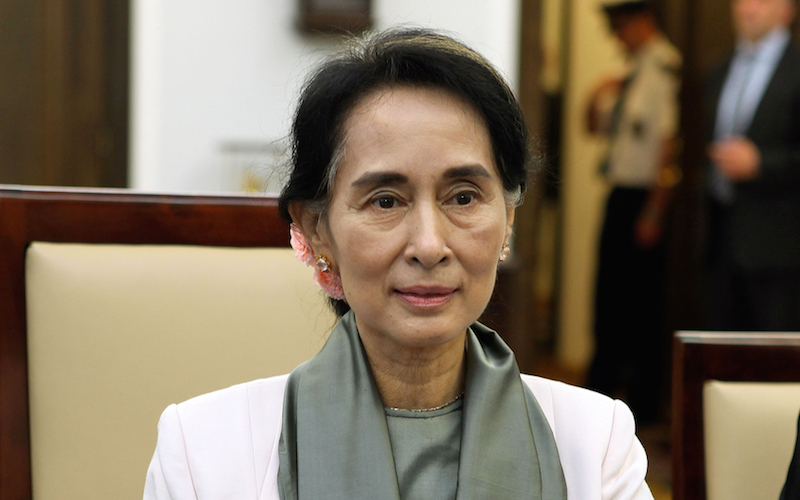
Democracy by Militia in Burma
The democratization process in Burma remains very much a work-in-progress, with parliamentary elections slated for next year and the country continuing to adjust to the growing pains associated with opening its economy to the rest of the world.
This week Aung San Suu Kyi’s National League for Democracy announced that The Lady will not be a candidate for president (having been disqualified by the Constitution) and the NLD is considering supporting the Speaker of the Parliament, Shwe Mann, for the post. Mann also happens to be Chairman of the ruling Union for Solidarity and Development Party, composed of former military officers.
It is clear that the military retains its grip on both the economy and the political process, and continues to project its power in a variety of ways. Like many autocratic governments, the regime in Naypyidaw has used militias to project power in rural areas for many years. Since the 1950s the government has created and sanctioned militias throughout the country, particularly in its most ethnic provinces, to exert control over ethnic populations, as well as to help secure the country’s borders.
According to the Burma Centre for Ethnic Studies, the militias are notorious for taxing local populations, engaging in drug trafficking, illegal gambling, and a wide variety of human rights abuses. This has occurred with the blessing of local military commanders who have personally earned large sums of money from these activities.
One would have thought that the transition to democracy would have diluted militia influence in Burma, but the ‘People’s Militia Forces’ continue to exploit local populations. In fact, Article 340 of the 2008 Constitution grants the military the right to operate such militias.
Given that Burma has, over the decades, fought a number of insurgencies, militias in some parts of the country have become more powerful than the central government – the result of having operated like independent fiefdoms. Shan State, in particular, composed of nine ethnic groups, and which straddles the Chinese border, has seen a proliferation of militia activity. Shan State has been the venue for a flourishing drug trade for decades and has continued in that capacity, with the ongoing blessing of the government and its militias, since the democratization process began in 2011.
Where revenue from the sale of drugs is not widely available, local militia commanders have exploited local populations through a combination of illegal taxation, bribery, forced labor and expropriation of farmland. Many farmers receive no compensation for their expropriated land, and it is not uncommon for poor villagers to be ordered to pay for the militias’ uniforms and stipends for militia family members.
One of the objectives of maintaining the strength and pervasiveness of the militias is undoubtedly to ensure that the government’s political opposition remains divided – unable to effectively coordinate on the ground, resulting in important ethnic groups being left entirely out of the political process.
Surely, an objective of the democratic process ought to be to give more people a voice in determining their future in Burma. Sadly, this appears to be as far from a reality today as it was 5 or 50 years ago. The absence of effective oversight from the central government – and the apparently lack of concern about the ongoing abuses by the militias and their leaders – is a growing concern, and speaks to the lack of confidence many in Burma have about just how effective or useful the democratization process is, or will be.
Such decades-old practices will be difficult to break, without strong leadership from Naypyidaw. Since Suu Kyi is apparently backing away from pursuing the presidency, and since the parliament does not appear to be interested in changing the Constitution to allow her to run, the entire process seems increasingly meaningless to the average person on the street in Burma. The prospect of the current Speaker and ruling party again taking the helm certainly will not send the right message to international traders, investors and lenders, much less to the international community.
If the ruling class in Burma cares for its country or its people, it will insist that effective oversight begin to be implemented on the proliferation of local militias in rural areas. Not doing so will send as powerful a message to the world as installing yet another rubber stamped military-controlled government in Naypyidaw.
This article was originally posted in The Huffington Post.

